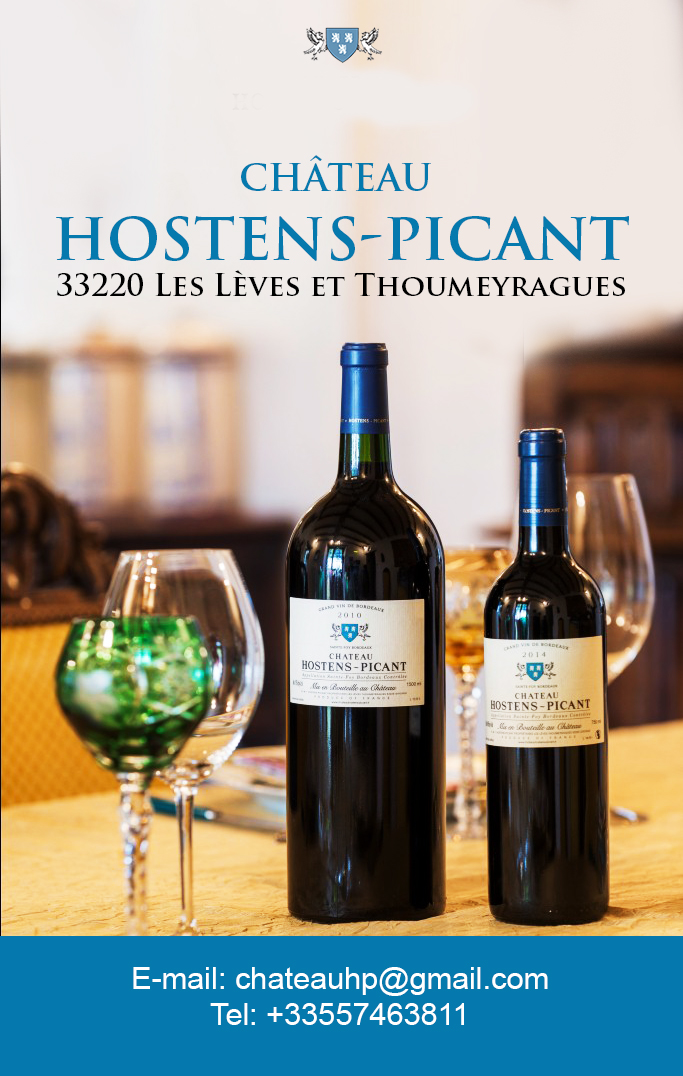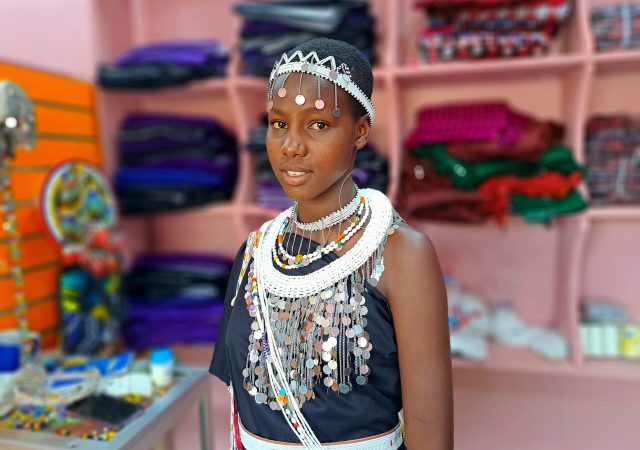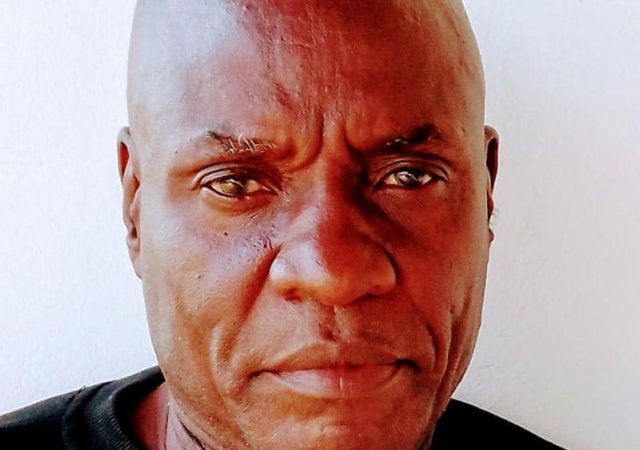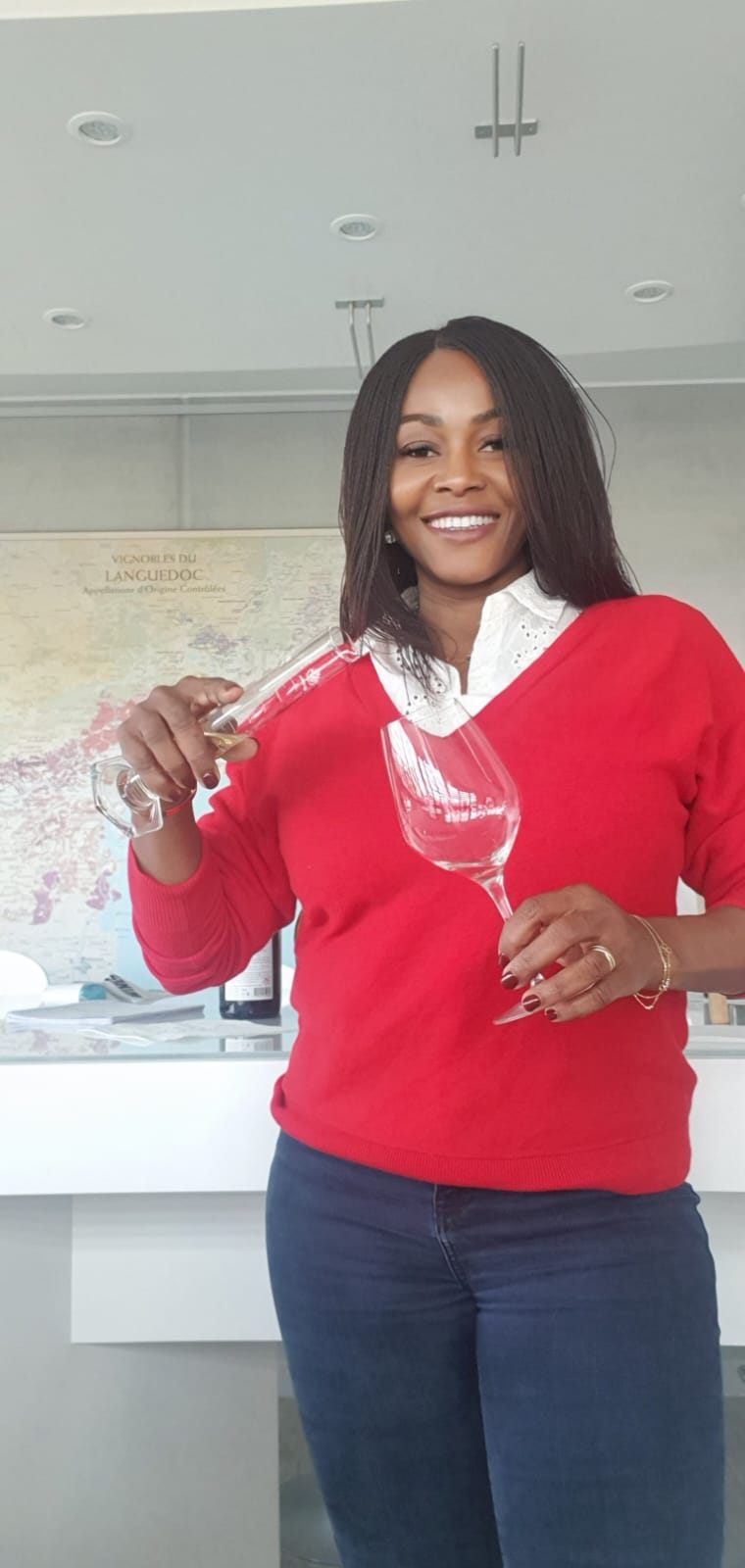
The CEO of Vines by Rosa Bordeaux, Chinedu Rita Rosa is a woman who is passionate about the development of her country, Nigeria. She started wine business in 1999 and established Vines by Rosa 2018 to fill the communication gap between the wine producers and direct consumers. Rita is also the co-founder of Bordeaux mentor week that advocates for equality and recognition of people of color in the wine industry, to give them opportunity to study for one week; all expenses paid to Bordeaux France. Rita and her co-founder, Jane Anson are expert voice of the wine world. They also mentor wine scholars to improve and strengthen their professional skills.
Rita who is currently in Nigeria with some wine producers from Europe speaks exclusively to Sunday Oyinloye, Publisher, Green Savannah Diplomatic Cable about her trip to the country.
Excerpts:
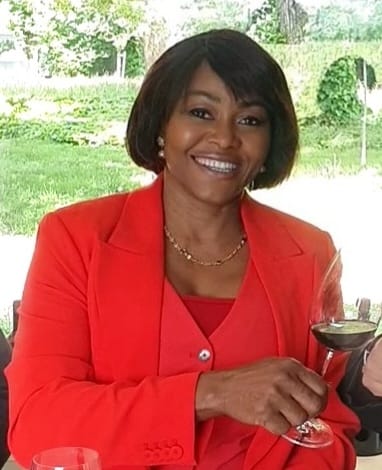
Why are you in Nigeria?
Nigeria is my home and I have a burning dream to contribute my quota to the development of my country particularly as it relates to our knowledge of wine, and the best way to do this is to come and show our people how easy it can be to understand wine better which some people often believe is just for the upper class. Wine tasting and wine drinking is for everybody, no matter your social class. Learning more about wine is not rocket science
Is wine not for the middle and upper class?
That is misconception. Wine is not for only the middle and upper class, but for everyone. There is wine of 1 EUR and there is wine 20,000 EUR a bottle.
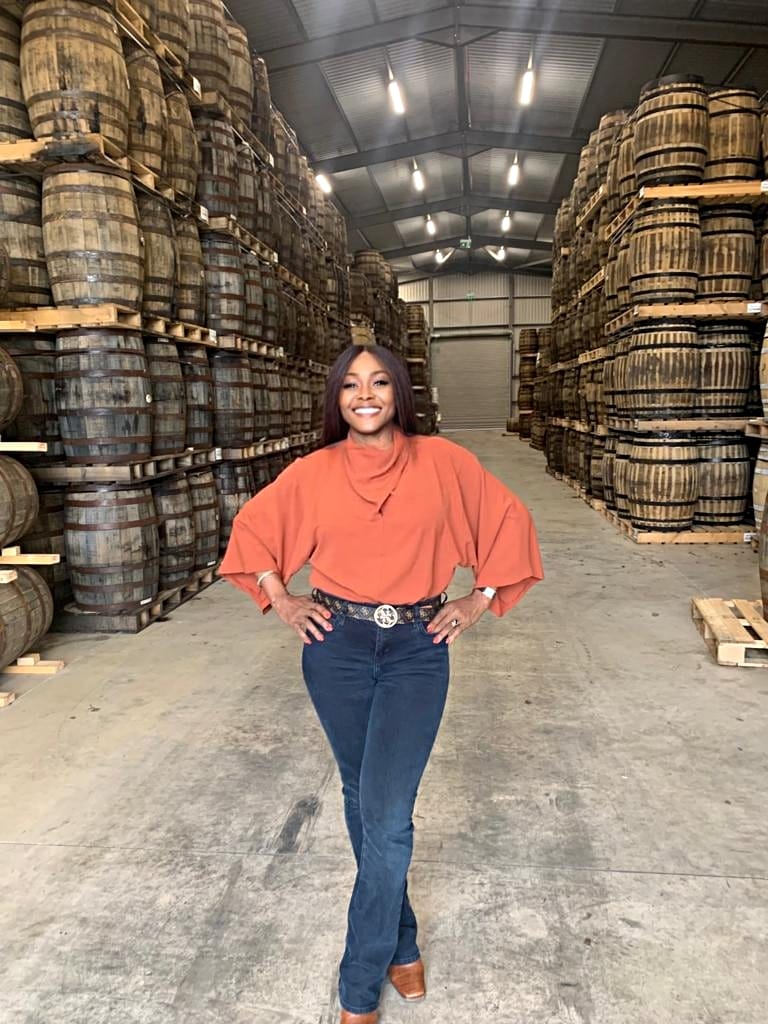
Twenty thousand Euro?
Yes, 20,000 EUR. I repeat, 20,000 EUR a bottle because the value of wine is not just the wine itself, but the history of the wine, history of the family producing the wine, and the history of the soil. Earlier today, I was explaining to people during training that it’s just like saying Calabar yam, Benue, yam, Onitsha yam or Ondo yam . In the wine world, if you are the best, your product is premium. So, where the wine comes from matters even before you start talking about the type of grapes. The place where the product comes from determines its value. That doesn’t mean the other ones are not good, you are rated high because every year, your product is good. This is how the people in the wine region of the world have managed to maintain their names in the standards book for wines. There are rules and regulations that these wine producers must follow to ensure the standard of their wines and because those people follow the rules and regulations, automatically, they have premium on their names
Are you just promoting some particular brands of wine or wine in general?
I am promoting the knowledge of wine generally; wine drinking, wine tasting and other things associated with wine. Today I’m with Italians, next week a producer is coming from France. It should not be only about selling the wine, but producers must come and meet the end users to know their taste and to know which wine goes with our foods in Nigeria. For instance which wine goes with Gbegiri and Ewedu or which wine goes with Egusi soup or Edikaikong or Jolllof rice? We do tasting with local caterers. Some of these producers have never eaten Jollof Rice before; they will eat it when they come to Nigeria, so that they can get our taste. At times we say wine is too dry, this is because it is not our culture to drink wine with our meals. Most times, Nigerians drink wine with Suya, pepper soup, Asun, but in European culture or in the wine region, from the beginning of your food till the end, there is wine
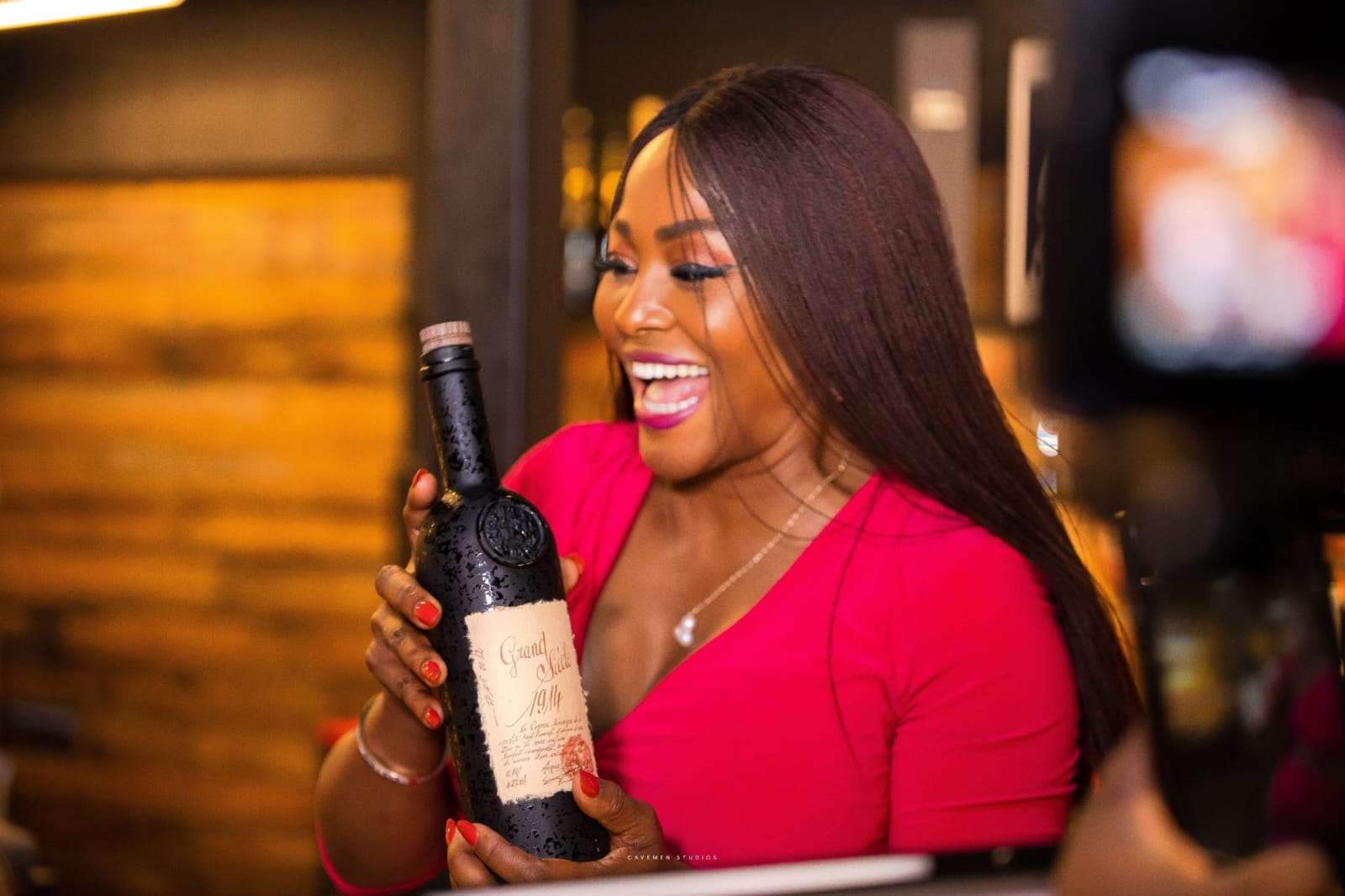
What is the economic benefit of what you are doing?
We are talking about standardized products coming into our country. What Vines by Rosa wants to achieve and is achieving by the grace of God is that before even NAFDAC checks the products, we check it. We know the products and where they are coming from, so our importers do not have to worry or be apprehensive of what happens if they take the products to NAFDAC. That cost, we cover it for you. We know the challenges of our business people, Naira is not stable and that is a big challenge because it makes planning very difficult for them. We saw our currency loosing value or depreciating. It is so difficult to do business in such environment. Therefore, my job is to make it easier for people who want to invest in wine business. We follow the trend of what is happening in Nigeria and we do our best to ensure that wine producers are fair to Nigerian wine importers. As a consultant, I tell my producers that look, if you want to do business in Nigeria, you must be flexible. That they shouldn’t give the prices they give to other people to Nigerians. A lot of smuggled and substandard products come to Nigeria with prices that the people importing standard wines cannot compete with so my job is to look at the two sides and see how Nigerians who invest in standard wine business can still make profit. We follow the trend and the economic situation of Nigeria and we advise the producers on the need to adjust their prices and payment terms in order to keep Nigerians in business. Still talking about the economic benefit the taxes government is making on wine is a lot. It is part of our GDP. It is part of the money they are supposed to use to repair the port. A country like ours should have a fantastic port; a country like ours should have good roads coming from the port. If those monies are put into right use, we will not have problem because a lot of money come to the country through wine business.

What is your message to the government and people of Nigeria?
My message is please pay attention to the people. A lot of people want to invest. We are a country of social and happy people and one thing wine do is to bring people together. Even in difficult situations, wine brings relief to the people. When people sit down to enjoy wine, they forget their differences. On our part, what we are doing is to make sure that we give Nigerians the best and quality products. We don’t produce wine in Nigeria for now but with climate change you never know, so those people importing wine or trading in wine pay taxes to the government , the money coming from that sector cannot be ignored by the government;
Is it not possible for some of these wine producers to set up their factories in Nigeria for example in a place like Jos that is cold?
There have been research and we found out that we could grow table grape, but the one for making wine is very precise, it needs enough cold to put vines to sleep. We call it deep sleep. The more the vine can sleep the more it can recover and give you the best product. It’s an expensive process. Our climate is not conducive for that now. If we do it now it will not have the intensity and the taste wine supposed to have. But we are not foreclosing it. They are planting vineyard in Uganda, there are some vineyards in Kenya. The Ministry of Agriculture in France is ready to collaborate with Nigerian business entities to see what can be done
What about just bottling it here in Nigeria?
Wine industry is a big business and government has to see it as big businesses to encourage people invest in it. Juice can be sent to Nigeria and then we bottle here. However, the challenge will be how to maintain standard because it has to be the same with what is produced say in Italy or France. The taste and quality has to be the same.
Are you currently working on that?
Yes we are. There is a lot going on and we need government to support us to achieve the desired result. They have to see the advantages. The economic value of the wine industry is increasing every year, so our government should look at people who want to invest in the industry to see how it can be a win- win thing. The producers themselves are looking for partners in Nigeria, they are ready to invest and partner with Nigerians, but government has to provide conducive environment to make this happen
